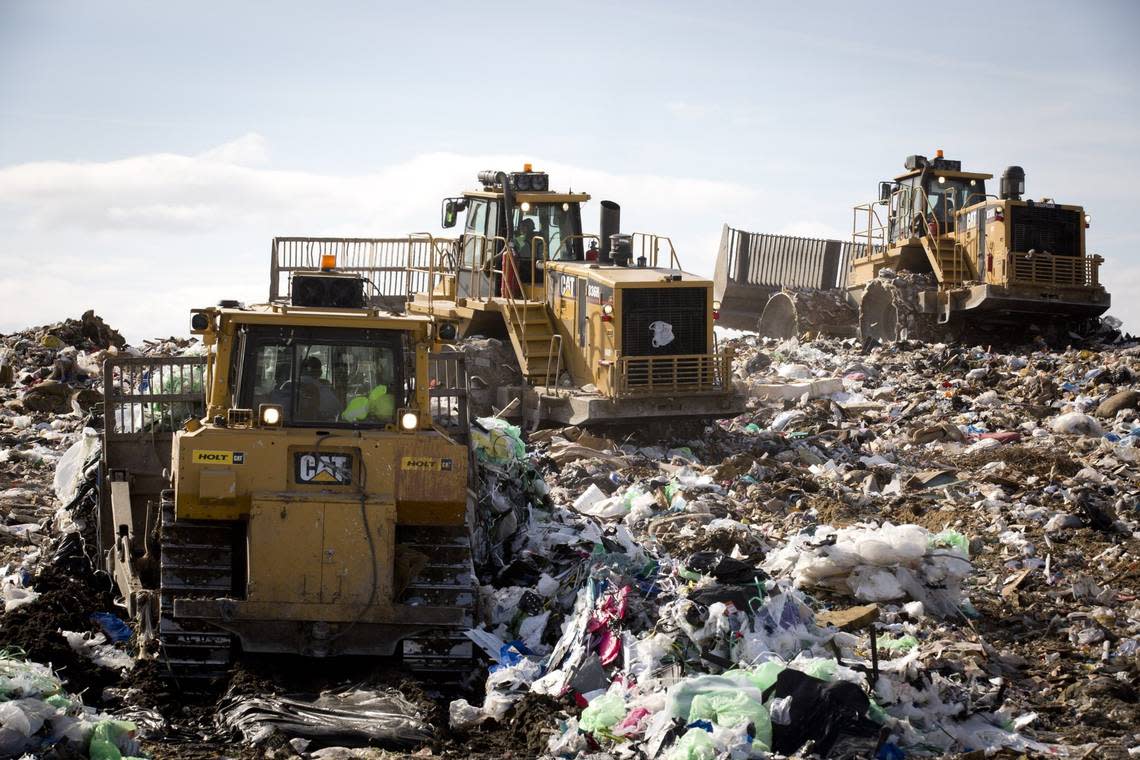Curbing South Florida’s climate crisis by turning trash into treasure. It can be done | Opinion

Alarming data about pollution from landfills has surfaced. According to a recent study by Harvard John A. Paulson School of Engineering and Applied Sciences (SEAS)., U.S. landfills emit methane at levels of 51% higher than previously estimated by the EPA.
At the city level, the researchers found that, on average, the 10 cities with the highest urban methane emissions have 58% higher emissions than previously estimated. Notably, Miami is among those 10 cities.
However, Miami cannot afford additional negative environmental impacts as it already stands as ground zero for climate change impacts, such as rising sea levels and extreme weather.
For instance, Miami is currently experiencing record-high temperatures and heat waves (May 2024 was the hottest May in the city’s history). And with Hurricane Beryl setting a record by becoming the earliest Category 5 storm in a calendar year, Miami is on alert for a hyperactive hurricane season sparked by the impacts of climate change.
There is an urgent need for nationwide action, especially in Miami, to address the climate crisis.
One promising solution is harnessing landfill gas for renewable energy production. To effectively drive and execute these smarter energy solutions, private-public partnerships (P3s) are essential.
Transforming Waste
Instead of letting harmful landfill gas flare into the atmosphere, we can capture it. Once captured, we can clean it and convert it into renewable natural gas (RNG), a fully interchangeable biogas and the lowest carbon alternative fuel. It has the same chemical makeup as fossil fuel natural gas but without a carbon footprint.
This creative approach to transform waste into clean, smarter energy is exactly what Nopetro Renewables are doing through a P3 with Indian River County.
We recently broke ground on Southern Florida’s first (and Florida’s second) landfill gas to RNG production facility in Vero Beach. Once the facility is completed in early 2025, the county’s landfill gas will be purified and the RNG will be added to local pipelines.
This circular operation facilitating cleaner air and fuel for buses and trucks throughout Florida is only possible through the commitment and support of multiple entities, including local governments.
Mutual benefits of P3s
P3s offer numerous benefits for municipalities, both in terms of the environment and the economy.
For instance, once the Vero Beach facility is operational, it will initially produce 3 million gallons of RNG a year and prevent 30,000 metric tons of CO2 emissions, equivalent to eliminating emissions from 4,300 passenger cars.
Another benefit is the system resiliency provided by a local native source of natural gas production.
Local sourcing reduces dependency on external energy supplies, ensuring more stable and reliable energy infrastructure.
Economically, P3 projects create jobs and can unlock valuable revenue opportunities for municipalities.
In Indian River County, the RNG production facility will generate about $400,000 of new and recurring revenue a year for the County. P3s offer government agencies the ability to more quickly realize capital infrastructure projects without having to contribute capital and/or incur operational costs.
Improving carbon footprints
With landfill gas to RNG model South Florida’s municipalities are aiming to improve their carbon footprint, avoid costs, streamline operations, and implement environmental policies should consider a waste energy conversion project through a P3. Successful existing partnerships in Florida can serve as a blueprint.
By adopting this approach, municipalities can not only contribute to environmental sustainability but also foster economic growth and operational efficiency in the region.
The urgency of eliminating methane emissions from our communities cannot be overstated. It’s a crucial step in combating climate change, improving air quality, promoting renewable energy, and enhancing community resilience.
Miami, standing on the frontline of climate change’s impacts, should lead these efforts. And with only two landfill gas to RNG production facilities in the state, there is a massive opportunity. P3s can be the vehicle for doing so, driving meaningful change in the solid waste and energy sectors, as well as in our neighborhoods.
Through collaborative innovation and strategic partnerships, we can turn our local trash into treasure, paving the way for a more sustainable future for generations.
Jorge Herrera is CEO of Miami-based Nopetro Energy.


